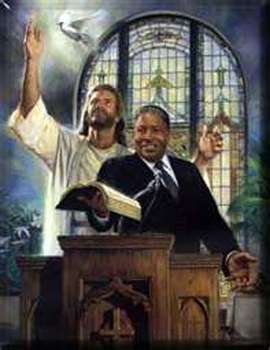
Name: Donnell Hicks
Title: The Rise and Fall of African-American Churches
“Three ingredients to black churches are preaching, music, and the Holy Spirit,”- W.E.B. DuBois
Since the founding of African-American churches in the North and South during the Revolutionary War period between the 1760’s & 1770’s, black churches across America particularly in the southern states have been the core foundation in the lives of all African-Americans during slavery, following slavery, and leading up to the Civil Right Movement of the 50’s and 60’s. The black churches are sanctuaries to get mental, physical, and divine spiritual healing to deal with life obstacles. There was a time and a place black churches had large congregations and preachers who would help those who are need.
According to www.gci.org, African-American churches took up what has been their historical mission to care for the spiritual and physical needs since that were neglected and discriminated by white society. Another reason church is the cornerstone in the African-American communities, is because members can express themselves freely by praising and worshipping Christ. African-American Christians saw their relationship with Jesus as the bedrock of faith that gave them hope for a better future.
Somewhere in the midst of it all, there has been a drastic decline in the African-American churches. At one point, preachers would use the spiritual doctrine of the Bible to help steer people who are lost and confused in the right direction to avoid oppression. Certain preachers would use the gospel to lure money away from the people within the church in order to gain a high status in the community.
During the times throughout slavery and following slavery leading into the Civil Right Movement, African-Americans would stand together holding hands either singing old Negro spirituals or hymns against racism in the Jim Crow-era. Now people come to church to make special appearances with the clothes they wear just to have the spotlight beamed on them. Preachers right now today drive the fancy cars and live in the big fancy houses, opposed to preachers back then whose primary focus was to spread the gospel to the lost souls.
Somehow along the way, black churches across America have fallen into complete despair. African-American churches have transformed from helping out the poor and needy to being all about the money and extortion by using the gospel rather than talking about and embodying a sense of unity. Today, there are preachers who teach false religion, fortune, and money, along with the glamour standing in the spotlight. Even the people who make up the congregation in the churches drive out the very person who is sitting in the church attempting to form a relationship with the Holy One. The person is driven out the church due to the gossip that spreads throughout the church regarding the burden he/she is dealing with in their lives.
From the birth of African-American churches in the United States dating back all the way to the Revolutionary War period to slavery thereafter and the Civil Rights Movement of the twentieth century through the twenty-first century, church has been the concrete cornerstone in the African-American communities. Although some people don’t attend church, it still remains a deeply rooted in the lives of African-Americans for over 250 years.
 RSS Feed
RSS Feed
